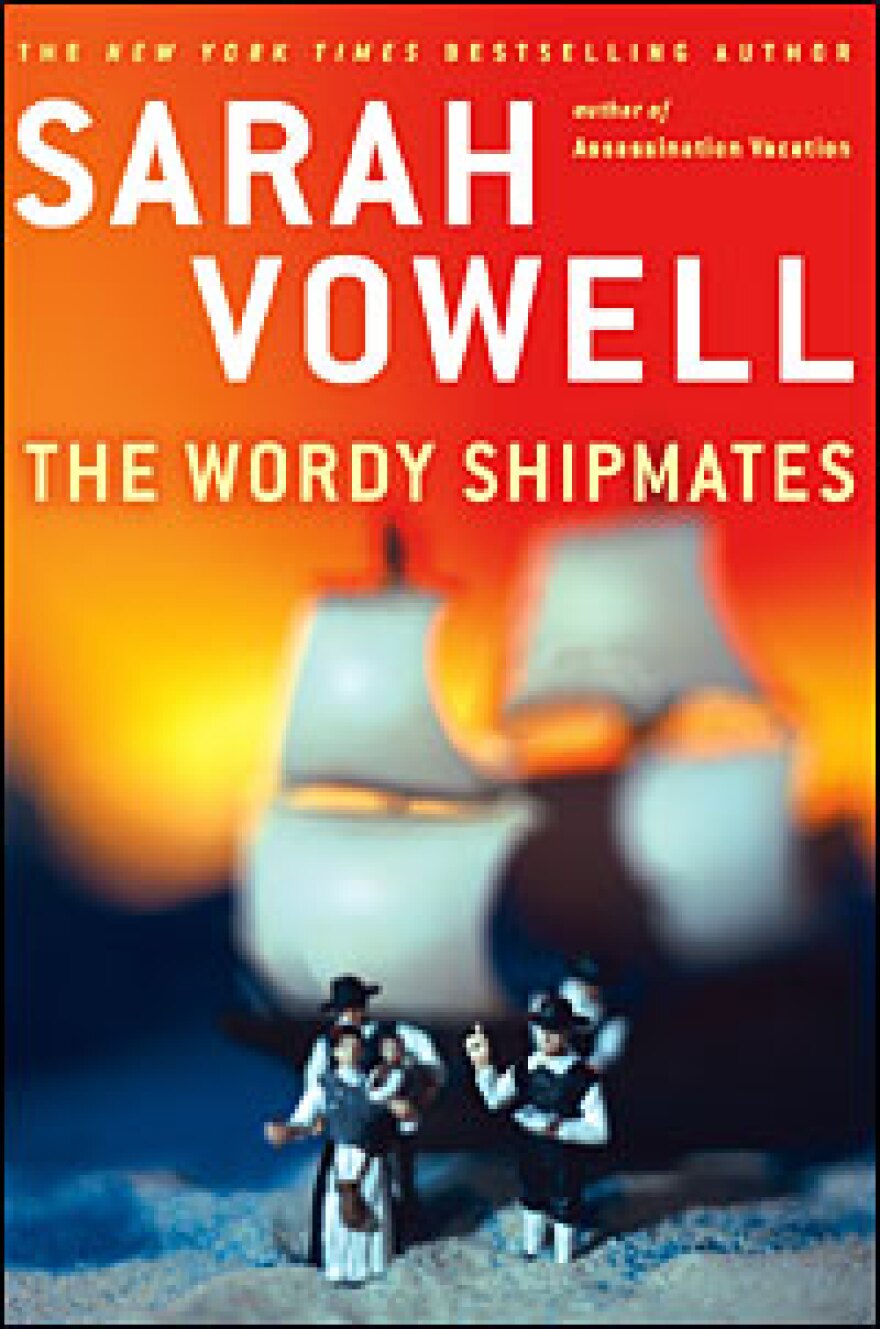
The only thing more dangerous than an idea is a belief. And by dangerous I don't mean thought-provoking. I mean: might get people killed.
Take the Reverend John Cotton. In 1630, he goes down to the port of Southampton to preach a farewell sermon to the seven hundred or so colonists of the Massachusetts Bay Company. Led by Governor John Winthrop, a gentleman farmer and lawyer, these mostly Puritan dissenters are about to sail from England to New England on the flagship Arbella and ten other vessels in the Winthrop fleet.
By the time Cotton says amen, he has fought Mexico for Texas, bought Alaska from the Russians, and dropped napalm on Vietnam. Then he lays a wreath on Custer's grave and revs past Wounded Knee. Then he claps when the Marquis de Lafayette tells Congress that "someday America will save the world." Then he smiles when Abraham Lincoln calls the United States "the last best hope of earth." Then he frees Cuba, which would be news to Cuba. Then he signs the lease on Guantánamo Bay.
Cotton's sermon is titled "God's Promise to His Plantation." He begins with one of the loveliest passages from the book of Second Samuel, an otherwise R-rated chronicle of King David's serial-killer years. Chapter 7, verse 10: "I will appoint a place for my people in Israel, and I will plant them, that they may dwell in a place of their own, and move no more." Sounds so homey, like that column in the real estate section of the New York Times about how people found their apartments. Until I remember that talk like this is the match still lighting the fuse of a thousand car bombs.
What Cotton is telling these about-to-be-Americans is that they are God's new chosen people. This they like to hear. In fact, they have been telling themselves just that. The Old Testament Israelites are to the Puritans what the blues was to the Rolling Stones—a source of inspiration, a renewable resource of riffs. What Cotton is telling them is that, like the Old Testament Jews, they are men of destiny. And, like the Old Testament Jews, God has given them a new home, a promised land. And, like the Old Testament Jews, God has printed up eviction notices for them to tack up on the homes of the nothing-special, just-folks folks who are squatting there.
It's fine, according to Cotton, to move into "a country not altogether void of inhabitants" if said country is really big. After all, he continues, "Abraham and Isaac, when they sojourned amongst the Philistines, they did not buy that land to feed their cattle, because they said 'There is room enough.' "
This is God's plantation, remember? Cotton says, "If God be the gardener, who shall pluck up what he sets down?" Hear that, Indians? No weeding of the white people allowed. Unless they're Catholic. Or one of those Satan-worshiping Virginians.
John Cotton is forty-six years old. He is the most respected, famous, and beloved Puritan minister in England. Getting him to bless the send-off of these relatively unimportant castaways would be like scoring Nelson Mandela to deliver the commencement address at the neighbor kid's eighth-grade graduation. In fact, once the colonists arrive in Massachusetts they will name their settlement Boston, in honor of Cotton's hometown.
These people listening to this man are scared. There's a boat in the harbor that just might sail them to their deaths. They may never see their friends again until heaven (or hell, depending how this dumb plan goes). For years they've grumbled that England is a cesspool governed by an immoral king under the spell of the Whore of Babylon, which is their cute nickname for the pope. But now that it's time to light out, their dear old mother country seems so cozy, all warm beds and warm beer and days of auld lang syne.
Yet here is the smartest man in England, maybe the smartest man in the world, telling them, little old them, that they have been picked by God. They are Israelites is what they are. They are fleeing Egypt. Good riddance! Next stop, land of milk/honey.
Now they know. They can do this. They can vomit their way across the sea. They can spend ten years digging up tree stumps to plow frozen fields. They can even learn to love corn. For the first time in months, they can breathe.
Reprinted from The Wordy Shipmates by Sarah Vowell by arrangement with Riverhead Books, a member of Penguin Group (USA), Inc., Copyright © 2008 Sarah Vowell.
Copyright 2023 NPR. To see more, visit https://www.npr.org. 9(MDM3NjYwMjA5MDE1MjA1MzQ1NDk1N2ZmZQ004))

